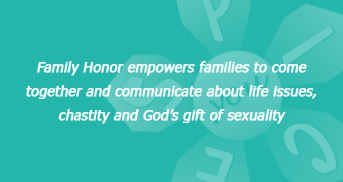|
|
|
NEW YORK , FEB. 3, 2005 ( Zenit.org ) - The notion of the gentleman has been out of fashion for some time, especially because of its connection to boorish, Victorian-era stoicism.
However, Brad Miner believes that the example of the gentleman is ripe for recovery, and far from being a stick-in-the-mud, the "complete" gentleman is a passionate warrior, lover and monk.
Miner shared with ZENIT, some key themes from his book, "The Compleat Gentleman" ( Spence ).
Q: What is a "complete gentleman"?
Miner: He is, of course, many things.
First, he is an inheritor of the medieval tradition of knightly prowess, and the Victorian ideal of gentlemanly decorum. As a means for recovering a sense of the complete gentleman, I propose three archetypes: the warrior, the lover and the monk.
I say that he is a warrior, because he knows there are things worth fighting for and is willing and able to fight; that he's a lover, because he treasures the woman in his life, gives her what she wants and allows her to free him from the tyranny of his own ego; and that he is a monk in that he values learning and silence.
I think the great, lost virtue in our time is restraint: the recognition that there is a difference between the public and the private. The complete gentleman practices what I call the art of "sprezzatura," which means that he is who he is and does what he does without drawing too much attention to himself in the process.
Q: Is your book descriptive or prescriptive? In other words, do you see a lack of gentlemen among the male population and seek to remedy the problem in your book?
Miner: The book is boldly descriptive and only mutedly prescriptive. I'm not an evangelist for chivalry, and in any case my view is that the descriptive part -- the detailing of the history, the telling of stories, the listing of virtues -- amounts to a kind of prescription, at least for the few willing to swallow the medicine.
Q: One commentator has described today's adolescent boys and young men as "wimps and barbarians." What has given rise to this phenomenon?
Miner: I suppose the "barbarians" are the boys animated by the macho violence of hip-hop culture and the "wimps" are the kids politicized by the various "isms" of the New Age.
There are many causes of this degradation, but it all comes down to a simple fact: Young people tend to lack a sense of calling or mission. This is partly what Michael Barone is getting at in his recent book "Hard America, Soft America." We have teen-agers who seem unable to cope with the rigors of competition and then 30-year-olds who are capable of running the world.
We live in a nation that has achieved an unprecedented level of luxury and in an age in which technology encourages passivity. Young people ought to be physically fit, if possible, morally responsible and intellectually active. If education does nothing but raise doubts, and culture mostly encourages predation, then the "smart" kids will be weak and "tough" kids will be cruel.
The antidote to this is balance and restraint. We need scholarship, devotion and self-control.
Q: Cardinal Newman wrote a very famous passage describing the Victorian-era gentleman. He seemed to conclude that being only a gentleman was largely inadequate for the Christian male, and that we are really called to sainthood. Is there a tension between being a gentleman and pursuing the universal call to holiness?
Miner: I devote some considerable space in my book to Newman's observations, and I argue that you have to put them in the context of his time and, to an extent, to read between the lines.
Without question, he considered saintliness preferable to gentlemanliness, but his point of reference was an ideal of the gentleman that had long ago lost its connection to chivalry. I believe the complete gentleman recovers that connection, especially chivalry's martial quality.
Newman was reacting to the portraits of the gentleman as drawn by writers such as Lord Chesterfield, Samuel Smiles and Charles Kingsley. Having summarized their views, Newman says they are fine -- as far as they go. Trouble is, they don't go far enough. It's as though the man they describe is what he is by virtue of his clothes; that gentlemanliness is merely something you wear. The biblical phrase "whited sepulchers" comes to mind.
A real man, we might say, was in Newman's view someone who "discerns the end in every beginning," which means he lives more fundamentally, less superficially.
He is patient and forbearing on philosophical principles -- not on the basis of social expediency; he "submits to pain, because it is inevitable, to bereavement, because it is irreparable, and to death, because it is his destiny." This is a flesh-and-blood man with, perhaps, emphasis on the blood.
Q: How can men exhibit the manly virtues, but at the same time exhibit the appropriate sensitivities? In other words, what is authentic manhood?
Miner: At the risk of seeming to duck the question, I have to say that each man must answer in his own way. Authenticity is inseparable from individuality. I have no "Seven Steps to Manliness."
But I will say this: We do well to reconsider the ancient qualities of the knight, which are loyalty, generosity, courtesy, honor, courage and restraint. It's fair to say that men in the Middle Ages mostly fell short of the ideal, as probably we will today. But for heaven's sake, let's at least aspire to a higher standard.
If I could give one rather reckless bit of advice to American men, it's this: Learn restraint, learn to fight, remember that you will die, and meditate devoutly on the fact that death is preferable to dishonor.
Q: Do we live in an overly feminized culture?
Miner: There are aspects of feminism that are nasty, but any man who throws up his hands in despair because he's confused about what women want, is a loser.
Again, we must live with a distinction between public and private, and what ought to matter most in a man's life is the love he shares with the particular women his life, not attitudes about "women in general."
Women are manifestly more powerful today than in the past, and this is positively good and absolutely not going to change. Palaver about male oppression is as ludicrous as claims about female superiority.
Loving and respecting women does not require diminishing masculinity.
Q: Has the crisis of manhood had a significant impact on the priesthood and the number of vocations in general?
Miner: This question is outside the realm of my knowledge. But I suppose a culture that produces weak and vacillating men will produce weak and vacillating priests.
Q: What can parents, schools and churches do to reverse this crisis of masculinity?
Miner: Chivalry has a long association with the Church, yet from its beginnings it was mostly about the transmission of knowledge from older men to younger men, especially from fathers to sons.
Parochial schools may be able to help both boys and girls to appreciate restraint as a virtue, but in the end chivalry and gentlemanliness need to be imparted by fathers to their sons. Boys especially learn by example -- or by lack thereof. I'm neither a psychologist nor a sociologist, but I suspect that the violent tendencies of fatherless boys are a direct, and maybe ironic, compensation for the lack of masculine strength in their lives.
Both the Church and the schools tend to formalize teaching, but masculinity is learned spontaneously. Fathers may give "lessons" in manliness to their sons, but the real substance comes from the boy's daily observations of the man.
Until they are teen-agers and young men, sons are only progressively responsible for who they are. But a father bears a tremendous responsibility to present an example of high moral standards, and to accept that this responsibility is paramount.
I know fathers who do and fathers who don't, and I'm pretty sure the sons of the fathers who lovingly embrace the challenge of raising their sons to be strong, loving and faithful are much better off than the boys whose fathers are missing or are present but desultory.
© 2004 Zenit. Reprinted with permission. You may visit the Zenit website at http://www.zenit.org/english
|




